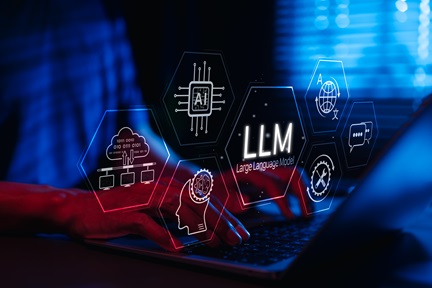Advancing Intellectual Property Dialogue in Asia and Beyond: Highlights from the 7th IPIRA Conference in Tokyo

From 4 April to 6 April 2025, Tokyo welcomed participants to the 7th edition of the Intellectual Property and Innovation Researchers of Asia (IPIRA) Conference, hosted by Waseda University School of Law. Co-organised by the Division of Business Law of Nanyang Business School (NBS), together with long-standing partners such as the World Intellectual Property Organization (WIPO), the World Trade Organization (WTO), and leading academic institutions across Asia, Europe, and the Americas, the conference brought together a dynamic and diverse community of scholars, practitioners, and policymakers to engage with a wide range of contemporary issues in intellectual property (IP) law and innovation policy.
Since IPIRA’s inception in 2019, the Division of Business Law at NBS has played a foundational role in supporting its evolution into a globally connected academic platform. In addition to co-organising all editions of the conference, NBS hosted the 2023 IPIRA Conference and offered critical support in running the fully virtual conferences in 2021 and 2022, which were held online in response to the COVID-19 pandemic. Reflecting this sustained commitment, Associate Professor Althaf Marsoof has served on the IPIRA Scientific Committee since 2021 and was appointed to the Executive Committee of the IPIRA Network in 2025.
At this year’s conference, which featured 42 parallel sessions and over 250 papers,
A/P Marsoof presented his latest research titled “Balancing Innovation and Access: The Role of Patents in Achieving Article 6 Goals of the Paris Agreement.” His paper examined how the international patent system can both facilitate and hinder the deployment of climate-related technologies under the Paris Agreement’s mechanisms for carbon markets and sustainable development. He also chaired the session on IP Enforcement, which brought together diverse perspectives on the challenges of enforcing IP rights in the context of digitisation and the globalisation of trade.
A Global Conversation on IP in a Changing World
The 2025 conference marked a significant moment of reflection for the global IP community, coinciding with the 30th anniversary of the TRIPS Agreement. In keynote speeches, senior figures such as Hasan Kleib (WIPO) and Johanna Hill (WTO) urged scholars to critically reevaluate the role of IP in responding to today’s complex global challenges, ranging from the rise of artificial intelligence and the push for sustainability to the imperative of equitable access and inclusive development.
Throughout the six main sessions and 42 thematic tracks, participants explored a diverse array of pressing issues shaping the future of IP law. One central area of focus was the legal and ethical implications of artificial intelligence. Discussions examined the evolving notions of authorship and liability in the age of generative technologies, the need for transparency in algorithmic processes, and whether current legal doctrines are adequate to deal with rapid technological change.
Sustainability was also featured prominently, with panels exploring how IP frameworks intersect with environmental objectives. Topics included the role of green trademarks, geographical indications in agriculture, and concerns over patent thickets that may hinder access to climate technologies. Participants reflected on how IP systems can support — or sometimes obstruct — progress toward the UN Sustainable Development Goals.
Several sessions were dedicated to traditional knowledge and genetic resources. These discussions addressed benefit-sharing mechanisms, the prevention of biopiracy, and recent developments under the new WIPO treaty aimed at protecting indigenous cultural and biological assets through more equitable global norms.
Copyright law in the digital economy attracted considerable attention, especially in light of AI-generated content and the changing nature of creativity. Speakers examined fair use doctrines, liability for online platforms, and the unique challenges of regulating emerging forms of content across arts, sports, and social media.
Other discussions focused on the commercialisation of IP, including methods of valuing and securitising intangible assets, the strategic role of trade secrets, and national and regional policies aimed at strengthening innovation ecosystems.
Finally, enforcement and competition-related issues were widely discussed, particularly in the context of digitisation and cross-border trade. Topics included intermediary liability, customs enforcement practices, and the expanding role of alternative dispute resolution in managing transnational IP disputes.
Plenary Reflections: IP in a Turbulent World
A highlight of the conference was the plenary roundtable titled “Intellectual Property in a Turbulent World: What Role for Academics and Institutions?” Chaired by Professor Masabumi Suzuki of Waseda University, the session brought together prominent voices from international organisations and academia, including Roshan Khan (WTO), Bernard Ong (Intellectual Property Office of Singapore), Irene Calboli (Texas A&M University), Justin Hughes (Loyola Law School), Nari Lee (Hanken School of Economics), and Xiuqin Lin (Xiamen University).
The panel explored the evolving role of academic institutions in shaping resilient and inclusive IP systems that are responsive to global challenges — from climate change and digital disruption to shifting trade dynamics and access to innovation. The session underscored the need for deeper transnational and interdisciplinary engagement, and the critical role of legal education in equipping the next generation of IP professionals and scholars with the tools to navigate complexity with sensitivity and foresight.
A Growing Community with Global Reach
Despite its rapid growth, IPIRA remains grounded in its founding mission: to provide a welcoming and inclusive platform for IP scholars, especially those from Asia and the Global South, to share research, receive constructive feedback, and build lasting academic networks. The Division of Business Law at NBS is proud to be part of this journey, contributing to a vibrant research culture that bridges academic rigour with real-world impact.
Looking Ahead: Strengthening the Future of IP Scholarship
As the global landscape of IP continues to evolve in response to rapid technological, environmental, and economic change, forums like the IPIRA Conference play a vital role in fostering meaningful academic dialogue and collaboration. The Division of Business Law at NBS remains deeply committed to supporting this international platform, which has become a cornerstone of IP scholarship in Asia and a catalyst for transnational research partnerships.


.tmb-listing.png?Culture=en&sfvrsn=d48abb4_1)




